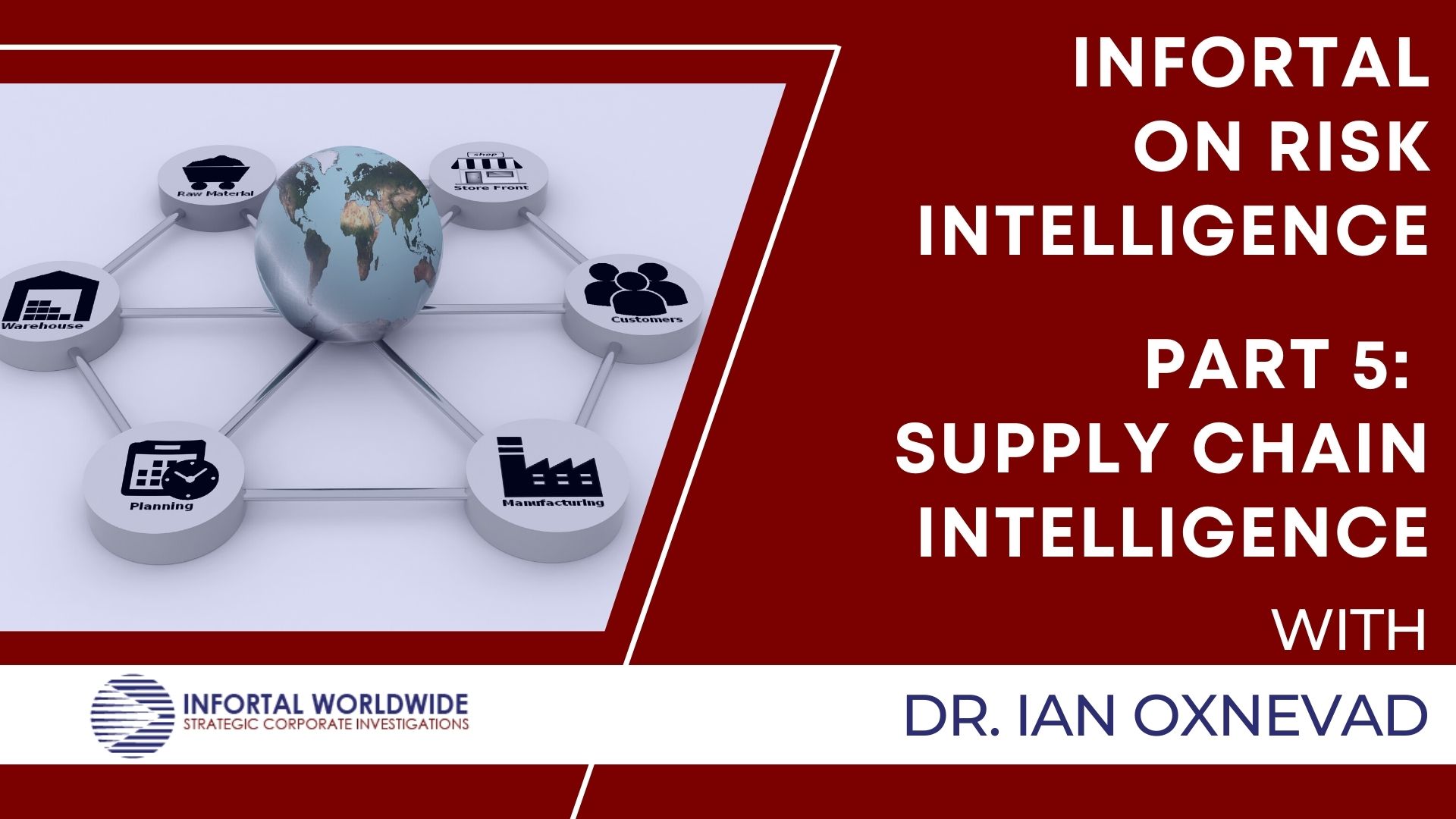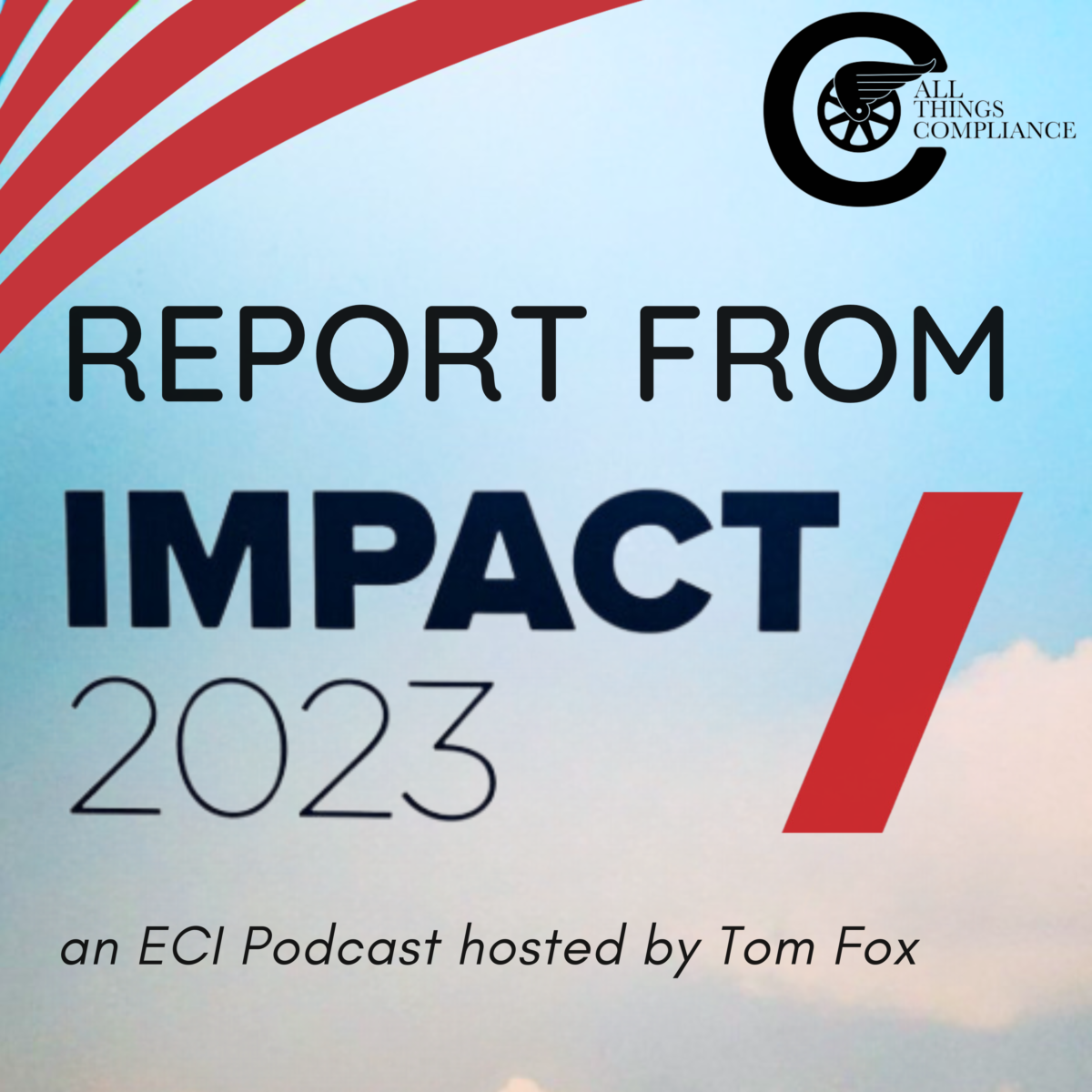I recently had the opportunity to visit with, Chris Mason, VP Global Compliance & Investigations at Infortal Worldwide and Dr. Ian Oxnevad, Director, Geopolitical Risk at Infortal Worldwide for a sponsor podcast on Infortal Worldwide’s Geopolitical Risk Intelligence 2023 Outlook. Over this series we considered business intelligence, ESG intelligence, corruption intelligence, sanctions intelligence and supply chain intelligence. In today’s final post in this five-part blog post series, we are joined by Ian Oxevad, Director of Geopolitical Risk at Infortal Worldwide, to discuss supply chain intelligence and how to navigate geopolitical risks. In this concluding blog post in this five-part series, we consider how to use intelligence to de-risk your supply chain and protect your business from geopolitical risks.
Oxnevad holds a PhD in political science and is an expert in in political science, economics, corporate espionage, economic warfare, money laundering, and terrorist financing to help companies understand the risks of their supply chain and how to de-risk it. He explains that supply chain intelligence is far from a new concept and goes as far back as the spice trade in the 15th century. Ian provides a three-step process to navigating supply chain intelligence and de-risking and provides a wealth of knowledge on the subject.
Here are the steps you need to follow to also get risk mitigation.:
1. Assess what your exposure is to certain geopolitical risks.
2. Utilize intelligence to find alternatives that connect a company to its customers.
3. Screen potential alternatives and warning indicators.
1. Assess what your exposure is to certain geopolitical risks.
The first step in assessing a company’s exposure to certain geopolitical risks is to gather information from the client. This includes their risk exposure, concerns, and goals. A company should then use intelligence sources, such as boots-on-the-ground resources and triangulated analysis, to create an intelligence product that can be used to make informed decisions. Once the risks have been identified, a company can then begin to look for potential alternatives to mitigate them. This could involve relocating suppliers to other regions, increasing efficiency, or increasing redundancy. Companies should also be aware of warning indicators that may indicate a rise in risk, such as political unrest, changes in regime, or an increase in militarism. Finally, the company must make an informed decision on which alternative to pursue. For more information on this topic, readers can visit the website Infortal.
2. Utilize intelligence to find alternatives that connect a company to its customers.
Utilizing intelligence to find alternatives that connect a company to its customers requires a two-step process. The first step is to interview the client, assess their risk exposure, and understand their goals. This will then inform the intelligence collection process which should include triangulated analysis, boots on the ground resources, and data from multiple sources. This will be collated into an intelligence product that will provide the client with a clear picture of their potential opportunities to de-risk.
The second step is to screen potential alternatives and conduct due diligence. This includes researching potential suppliers and investors, local conditions, and warning indicators that could signal risk in the future. This should give the company the information they need to make informed decisions and the ultimate decision of which alternative to pursue is left up to them. For more information, listeners can visit the Infortal website.
3. Screen potential alternatives and warning indicators.
The third step in addressing supply chain intelligence is to screen potential alternatives and warning indicators. This involves conducting an intelligence cycle for the company by interviewing the client to determine their risk exposure and goals, and then utilizing boots on the ground resources and triangulating analysis from different sources to refine and integrate information into an intelligence product. Companies can also benefit from due diligence to screen potential suppliers, investors, and local conditions.
It is also important to monitor warning indicators of developing risks. These indicators can include contentious presidential elections, the annexation of Crimea, the integration of Russian mercenaries in the Donatas and Donbas regions, and more. This can help the company anticipate any risk that the company may be exposed to, allowing them to make informed decisions on the best alternative supply chain system for them. Finally, the decision is up to the company and their legal counsel, executives, and other pertinent players.
Navigating supply chain intelligence and de-risking requires a two-step process of gathering information and utilizing intelligence sources to create an intelligence product. Companies should also screen potential alternatives, conduct due diligence, and monitor warning indicators to ensure they make the best decision for their company. With the right strategies and knowledge, any business can protect itself from geopolitical risks and achieve success.
Check out Ian Oxnevard on the Riskology by Infortal podcast here.









